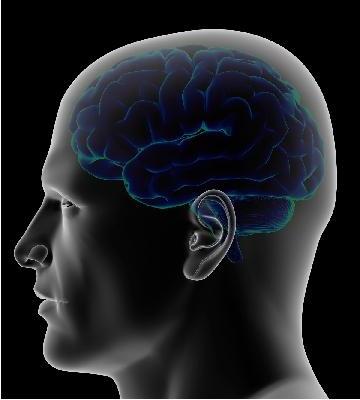Pneumococcal meningitis is an extremely serious infectious disease, accompanied by inflammation of the membranes of the spinal cord and brain. In the presence of such a disease, it is very important to make a diagnosis on time and immediately begin treatment, since otherwise the development of complications up to a fatal outcome is not excluded.
Pneumococcal meningitis and its causes
As already mentioned, this is an infectious disease, the causative agent of which is the gram-positive bacterium pneumococcus. Pathogenic microorganisms penetrate the meninges through the mucous membrane of the nasopharynx, after which they cause local inflammation of the tissues. The source of infection is an infected person, a household transmission route is much less common. In addition, the development of a similar disease contributes to the presence of a purulent focus. For example, pneumococcal meningitis often develops against the background of pneumonia, otitis media, or sinusitis. It is worth noting that, if untreated, the infection spreads rapidly throughout the body, affecting the joints, heart muscle and other organs.
Pneumococcal meningitis: symptoms
In most cases, the disease begins acutely with weakness and a sharp increase in temperature to 38–40 degrees. In the future, very characteristic signs begin to appear:
- The very first and most striking symptom is extremely strong, persistent headaches.
- In addition, there is constant nausea and frequent vomiting, which, alas, does not bring the patient any relief.
- A few days later, stiff neck develops (a person cannot press his chin to his chest).
- The characteristic symptoms can also include convulsions, paresis and other disorders that are somehow related to damage to the nerve roots.
- In some cases, damage to the nerves that control the muscles of the eyeball is also observed. In addition, with an ophthalmological examination, vasodilation in the fundus can be seen.
- Meningitis is often accompanied by increased sensitivity to light.
- The above symptoms are far from all that the infection can lead to. Meningitis in the absence of timely medical care leads to the development of cerebral edema, pulmonary heart disease or sepsis. Treatment in this case is simply necessary.
Pneumococcal meningitis: treatment methods

Of course, with suspected meningitis, the patient is hospitalized. Features of treatment depend on the form and severity of meningitis, as well as the presence of complications. To begin with, the patient must be prescribed a course of antibiotics - this is the only way to eliminate the infection. Along with this, the intake of vitamins and drugs that improve the functioning of the immune system is indicated. Depending on the symptoms, doctors prescribe either sedatives, or drugs that stimulate brain activity. In addition, drugs are used to normalize blood circulation in the central nervous system. With dehydration, arising against the background of constant vomiting and refusal of food and drink, prescribe the introduction of solutions that can fill the water shortage. With cerebral edema, on the contrary, dehydration and removal of excess fluid from the body are carried out. In any case, treatment of this form of meningitis can last several months.